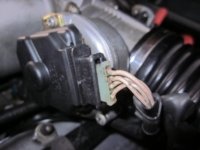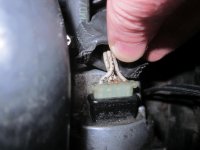Tach to 0, random
Driving on the Kancamagus in NH. Car running great, smooth, powerful, confident. Then no warning, tach goes to 0, very disconcerting att speed. Try to restart while moving and get the car running starter screetch.
When stopped, car starts with a little cranking and gas. Runs fine until...nothing. I'm running Pertronix 1868.
I've been chasing a random small 'hick', new cap & rotor arrive tomorrow. Oldest part if the ignition is the coil...which will be ordered tomorrow.
Any help is greatly appreciated.
Driving on the Kancamagus in NH. Car running great, smooth, powerful, confident. Then no warning, tach goes to 0, very disconcerting att speed. Try to restart while moving and get the car running starter screetch.
When stopped, car starts with a little cranking and gas. Runs fine until...nothing. I'm running Pertronix 1868.
I've been chasing a random small 'hick', new cap & rotor arrive tomorrow. Oldest part if the ignition is the coil...which will be ordered tomorrow.
Any help is greatly appreciated.
Last edited:









